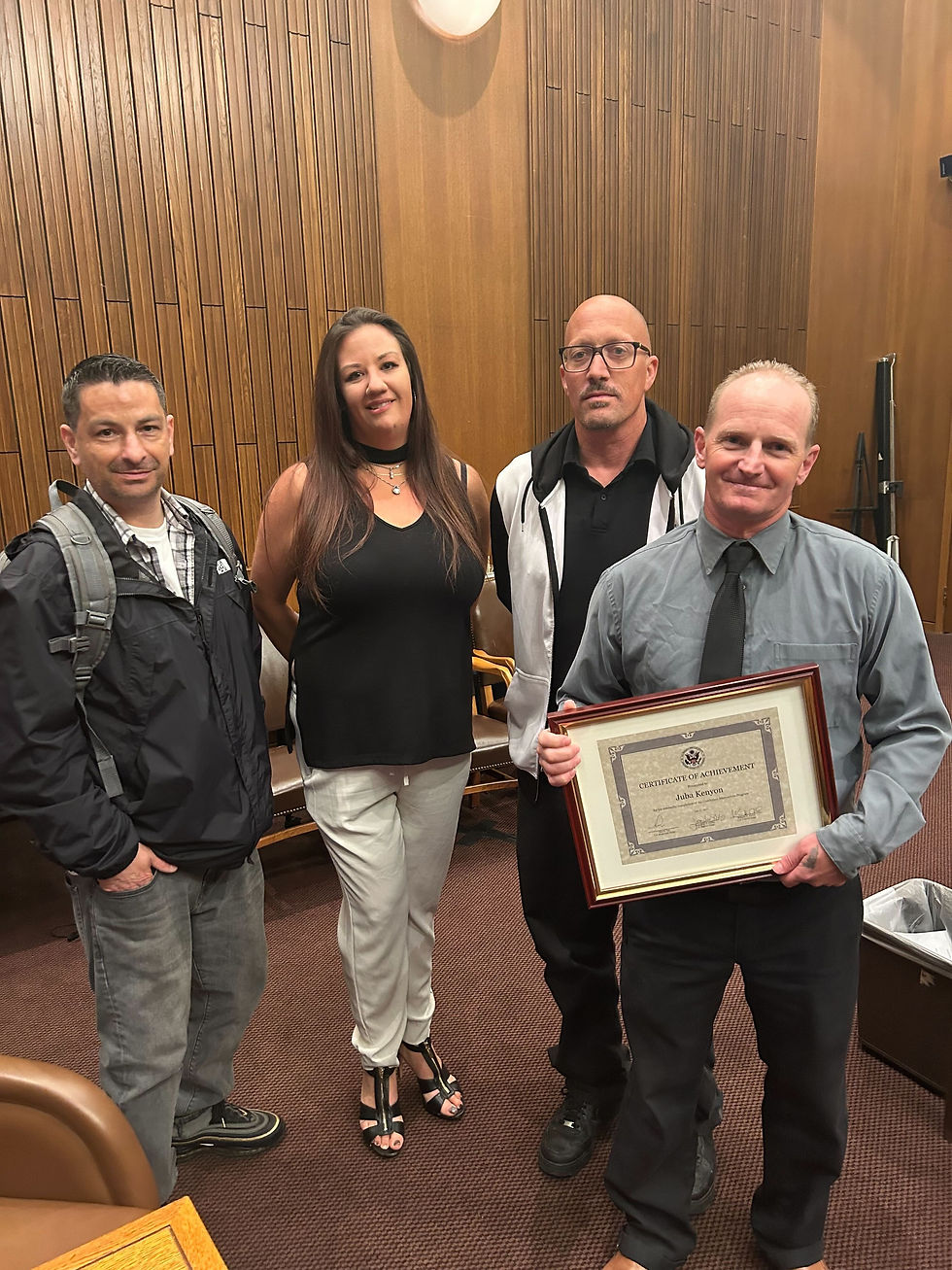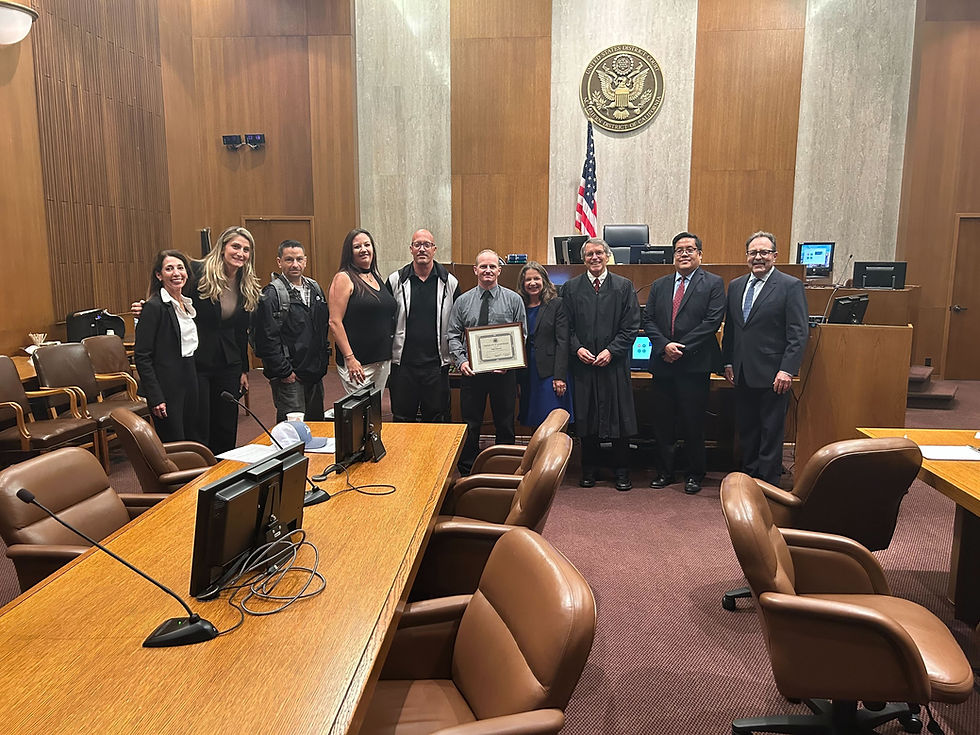CAP Graduation Reflection
- Wyatt Lim-Tepper
- Jul 27, 2025
- 2 min read
By Haley Neumann

On July 17th, I had the honor of attending a Conviction Alternatives Program (CAP) graduation for the first time in Judge Orrick’s courtroom. Though I had been in this courtroom before, this event felt truly special. The grandeur of the space seemed to match the significance of the occasion, with palpable excitement and joy. As Judge Orrick stated, much to the agreement of the audience, these graduations represent the very best moments that happen in that courtroom.

The room was full of life: colleagues, mentors, community members, interns, former graduates, and friends all gathered to support the graduate. It was particularly powerful to see two former CAP graduates in the audience, along with members of the current cohort seated up front. Their presence created a strong sense of community and continuity, underscored by the fact that over 150 individuals have completed the program since its inception.
Several speakers, ranging from the three federal judges to the graduate’s pretrial officer to his A Curiae mentor, shared heartfelt reflections. What stood out to me the most was the emphasis not just on the graduate’s formal progress in treatment and programming, but on his compassion, initiative, and ability to build connection. These intangible qualities came through even more clearly in the personal statement that he read aloud. It was deeply moving to hear how his growth had a ripple effect beyond himself, including helping his brother begin his own treatment journey.

The reception that followed allowed everyone to connect over food and drink, to celebrate the graduate’s accomplishments, and share in the hope and humanity at the heart of this program. As an MPH student, I see this work as public health in action as substance use, mental health, and larger structural inequities are addressed through a compassionate, collaborative approach that centers human dignity. Witnessing this graduation was a powerful reminder of how healing and transformation are possible when systems truly work with people, not just on them.




Comments